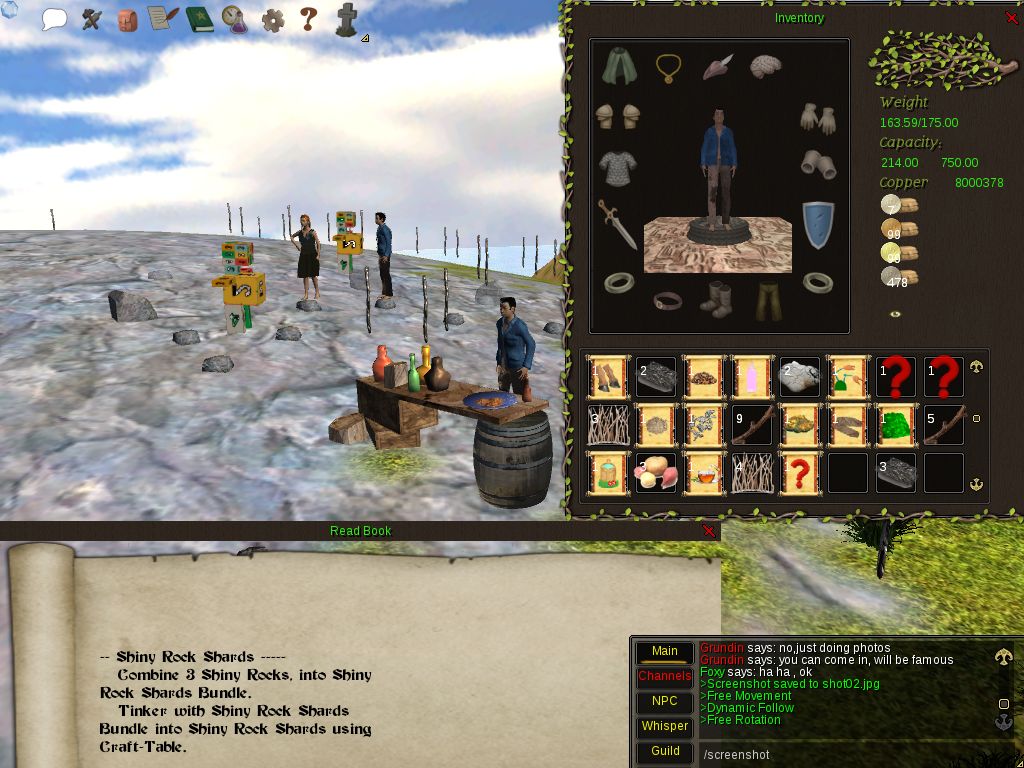On June 1st in the monthly report of the S.MG MPEx asset (also traded as pass-through on Havelock Investments), source code for Eulora client were published. Several days later also Windows binaries for the Eulora client followed. Work on releases for other platforms and on a game manual is ongoing. Continue reading
Monthly Archives: June 2015
Online Drug Trade Booming Despite Silk Road Shut Down & Ulbricht's Subsequent Life Sentence
2015's Global Drug Survey (archive) – which collected data from over 100,000 respondents across 50 countries via platforms such as The Guardian (archive) and Fairfax Media (archive) – has revealed what most people already knew: that people are increasingly turning to online darknet markets to facilitate the purchase of drugs and use bitcoin to pay for them; 2014 saw an increase in the number of newcomers to the darknet markets; people experienced less physical violence, threats to personal safety, blackmail and threats to reveal one's identity when buying drugs online and more often received the correct product. However, darknet marketplace participants experienced more theft, pricing volatility and waited longer to receive their orders. Questions and data released in the report include: Continue reading
Bandits Stick Up Craigslist Bitcoin Seller
The dangers of trapping has once again reared its head in the city of New York with CNBC reporting (archive) a 28 year old man who attempted to sell bitcoins via craigslist met with a purported buyer who then lead him to a vehicle to finalise the transaction. Hidden in the back seat of the car was another man who ordered the seller to transfer the bitcoins to his wallet at the point of a gun. In addition to the USD $1,100's worth of bitcoin, the bandits stole the man's mobile phone. Continue reading
Company Pays $14,000 Ransom In Bitcoin, Attackers Return For More
The Brisbane Times reports (archive) that an unnamed multinational company located in Brisbane, Australia recently paid a bitcoin ransom totalling AUD $14,000 or approximately USD $10,500 after its computer system was compromised resulting in the theft of what police claim is sensitive data pertaining to the operation of the business. Continue reading
3 Years Prison For Backpack Full of Cash in Winnipeg
Erwin Speckert was sentenced to three years of prison after a money laundering conviction derived from his arrest while boarding a Greyhound bus with $1.3 million Canadian Dollars in his backpack. Speckert plead guilty back in October and the sentence was arranged this week through agreement between the prosecution and defense lawyers. Speckert had requested his security screening be done in private due to the sensitivity and value of his backpack's contents and after he was assured by the private security officer who screened him that taking that much cash on him was kosher, the private security officer phoned police who assert Speckert consented to a second search conducted by them. Police further assert that Speckert was determined by their investigation to be working as a courier for "illegal gaming" operators. Speckert throughout his time consenting to security searches at the bus station asserted he intended to purchase real estate and was conveying cash in this manner as he reasonably did not trust banks.
NYDFS Announces Final Bitlicense Rules
As the days wind down before Benjamin Lawsky leaves the New York Department of Financial Services for private practice, Lawsky unveiled the final version of his New York Bitlicense proposal at an event in Washington DC. The full text of the document is available below: Continue reading
Dotcom Scores Victory Against Forfeiture in New Zealand Court
New Zealand court Justice Rebecca Ellis has issued a ruling which strikes a serious blow against the efforts of the United States to seize the assets of entrepreneur Kim Dotcom. After March's United States court ruling which sought to seize Dotcom's assets through a legal construction known as the "fugitive disentitlement doctrine" and efforts by New Zealand's Commissioner of Police to assign Dotcom's property to the Crown, Dotcom and his attorney Bram Van der Kolk sought relief through judicial review of the actions in New Zealand courts. Continue reading
Elonis Wins At US Supreme Court
In the free speech case Elonis vs. United State which was featured earlier on Qntra, the justices of the United States Supreme Court decided in favor of Elonis. Elonis challenged his conviction under Federal statutes prohibiting the interstate transmission of threats for his having authored rap lyrics. The justices vacated the conviction and sent the case back to a lower court to be reconsidered under a stricter standard for prosecution which would require demonstrating Elonis had a criminally culpable state of mind, or Mens Rea when disseminating his lyrics. While the decision was not a complete victory for Elonis the idea that offense is something imposed by the recipient of an utterance, and if utterances are to ever be criminal Mens Rea must be established is almost a positive development in the bleak wasteland of the United States legal system.
Foundation Report Brings Bitcoin Client Performance Improvement and Testing
This month's State of Bitcoin Address issued by the Bitcoin Foundation largely covers the submission and testing of two patches which promise to greatly reduce the memory usage of the Bitcoin reference client. The two major patches submitted are named "Orphanage Thermonuke" and "Transaction Orphanage Amputation" and in tandem they have the potential to seriously clamp down on Bitcoind's memory footprint and could lead to Bitcoin nodes running on more kinds of hardware. The patches work in tandem to drastically alter the Bitcoind client sync mechanism in a radical way. Continue reading
